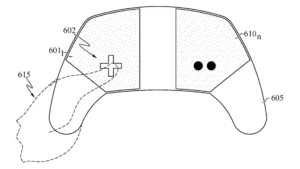In a significant ruling, the Delhi High Court has refused to grant a patent to Kroll Information Assurance LLC, a US-based company, for a system designed to track users who share sensitive content through peer-to-peer (P2P) networks. The Court determined that the invention falls under the excluded category of computer programs or algorithms, as outlined in Section 3(k) of the Indian Patents Act, 1970.
🔍 About the Patent Application
The Indian patent application (No. 8100/DELNP/2007), originating from a US priority application filed in April 2005, proposed a monitoring tool. This tool was intended to search P2P networks using keywords and identify users distributing confidential or protected files. The system aimed to create detailed user profiles and support data loss investigations.
According to the patent claim, the system functioned via basic computing infrastructure—processors, memory, storage devices—and relied heavily on software-based algorithms for search and analysis.
⚖️ Key Objections Raised by the Patent Office
The Indian Patent Office previously refused the application for the following reasons:
- Lack of Inventive Step: As per Section 2(1)(ja) of the Patents Act, the claimed invention was seen as obvious, offering no technical advancement over existing solutions.
- Ineligible Subject Matter: Under Section 3(k), the system was deemed a software algorithm or computer program, which is excluded from patentability in India.
- Improper Amendments: The amended claims were said to introduce elements not disclosed in the original filing, allegedly violating Section 59 of the Act.
🧑⚖️ Court’s Analysis and Final Verdict
The matter was heard by Justice Prathiba M. Singh, who offered a nuanced interpretation of Indian patent law:
- On Amendments: The Court held that the claim amendments were valid. They were supported by the original specification and only narrowed the claims, which is permitted under Section 59.
- On Technical Advancement: Despite allowing the amendments, the Court found the invention lacked any real technical contribution. It merely applied a known method—keyword searching—on a P2P platform using conventional computing resources.
- On Section 3(k): The bench concluded that the claims represented a computer program per se, and thus clearly fell within the scope of the non-patentable subject matter under Section 3(k).
The Court relied on key precedents, including:
- Ferid Allani v. Union of India – Read here
- Microsoft Corp. v. Assistant Controller of Patents
- Lava International Ltd. v. Ericsson
These rulings reaffirm that software without a technical effect or hardware integration is not eligible for patent protection in India.
🧠 Implications for Software Patentability
This judgment underscores India’s strict interpretation of Section 3(k). Patent claims that describe an algorithm or software-based method without technological innovation are likely to be denied, regardless of commercial or investigative utility.
To secure patent protection for software inventions in India, applicants must demonstrate that their innovation results in a technical effect or enhancement of a computing process or hardware function.




